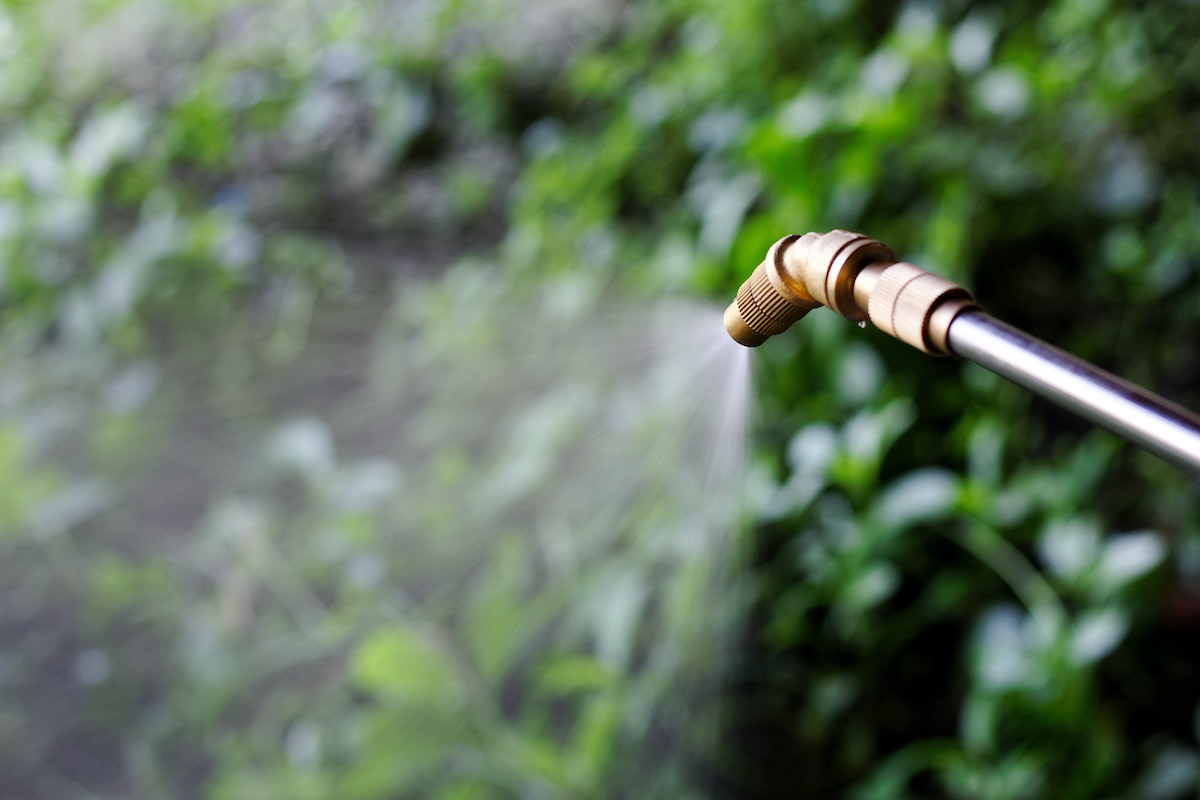Simple DIY Weed Killer: How to Make Homemade Weed Killer
Written by MasterClass
Last updated: Jun 9, 2021 • 4 min read
Weeds can ruin a garden’s beauty. Fortunately, homemade weed killers are inexpensive, efficient, and easy to make at home.
Learn From the Best
What Is Weed Killer?
Herbicides, commonly called weed killers, are solutions that stop the spread of—and eventually kill—weeds. Herbicides hamper weed growth by interfering with photosynthesis, slowing protein production, and blocking root formation. Weeds can grow in gardens and mulch, between the stones or bricks of paths and driveways, and in any location nourished by sunlight and water. Weeds can be more than landscaping eyesores: they choke flowers, vegetation, and other plants, robbing them of the nutrients they need to survive and flourish. Herbicides can help to preserve plants by protecting cultivated areas and keeping them weed-free.
2 Weed Killer Categories
Herbicides are composed of two main categories—selective and non-selective weed killers:
- 1. Selective herbicides: These herbicides attack certain species, leaving desirable plants or crops safe.
- 2. Non-selective herbicides: Non-selective herbicides, also called total weed killers, will kill not just weeds but all plant life they come into contact with.
Are Weed Killers Toxic?
There are many kinds of commercial herbicides and chemical weed killers with solutions that vary in toxicity. The dangerous chemicals can affect the well-being of people, pets, insects, birds, and other wild animals.
4 Types of Homemade Weed Killers
Homemade weed killers come in several different types. Some safe, all-natural weed killers include:
- 1. Vinegar-based weed killers: Household vinegar works nicely as a natural weed killer. Combine vinegar with liquid dish soap for a mightier solution. You can also add salt—but only use it in areas not intended for growing grass or other plants since it can affect the soil’s richness and fertility.
- 2. Bleach-based weed killers: Bleach is highly effective in ridding an infested area of weeds. This household herbicide (you can use laundry bleach) is best for targeted usage. Use watered-down bleach on patios or pathways far from flower beds and lawns since the harsh chemicals will make it difficult for your soil to regain fertility.
- 3. Rubbing alcohol-based weed killers: Rubbing alcohol solutions will dry out root systems, cut off weeds’ water supply, and kill garden weeds. Liquors like vodka, rum, or gin will have a similar effect and can replace rubbing alcohol as a homemade weed killer.
- 4. Borax-based weed killers: Borax has a high concentration of sodium, making it a potent weed killer. Use borax-based weed killer sparingly as it can be toxic to animals. If you have an ant or insect problem, mixing in some sugar will attract them to this weed killer and simultaneously take care of unwelcome pests.
How to Make and Use Natural Weed Killers
Many natural weed killers are DIY-friendly and affordable to make by combining simple ingredients found around the house. Follow these simple recipes to make and use a homemade weed killer properly:
- Boiling water: This straightforward method works as a quick fix. Boil a pot of water, pour it over the invaded area, and repeat the process as needed. The scalding water will kill crabgrass and weed seeds, rendering them unable to sprout and slowing the spread of new weeds. Without other compounds added, boiling water may not completely rid an area of weeds, but it is a cost-effective and eco-friendly method.
- Baking soda: Sprinkling baking soda is another simple way to kill off pesky weeds. The higher salt content in baking soda suffocates the weeds, efficiently stopping their growth. Baking soda works well for weeds growing out of cement cracks or between bricks, as you can apply it in hard-to-reach places. Grab a handful, liberally spread it into those crevices, and sweep it away from your lawn to keep it safe.
- Vinegar and salt weed killers: Vinegar will kill unwanted weeds, but the weeds may spring back. This tamer weed control makes for a pet-friendly option that won’t damage other plants. Adding salt ensures greater strength, and using such solutions on warmer, sunny days will more quickly kill weeds, as the salt will dehydrate them. Add one cup of table salt to one gallon of white vinegar (one with a five percent acetic acid concentration will do), and stir until the salt fully dissolves. Add a tablespoon of dishwashing soap to help the solution bind to the weeds. Put the mixture into a sprayer and douse the weeds.
- Rubbing alcohol-based weed killers: This DIY weed killer requires two tablespoons of rubbing alcohol mixed in a quart of water. Pour it into a spray bottle and spray generously over only the targeted leaves, carefully avoiding other plants. As a non-selective herbicide, use this solution carefully. Liquors or rubbing alcohols can make for deadlier herbicides with longer-lasting effects.
Weed Killer Alternatives
In addition to using weed killers, you can take other actions to prevent the growth of weeds. A layer of mulch can block sunlight and slow weeds’ development, as can groundcovers. Trim flowers off weeds like dandelions so they don’t spread more seeds. Tedious, good old-fashioned weeding—pulling out roots and all—can save nearby plants.
Learn More
Grow your own garden with Ron Finley, the self-described "Gangster Gardener." Get the MasterClass Annual Membership and learn how to cultivate fresh herbs and vegetables, keep your house plants alive, and use compost to make your community—and the world—a better place.
